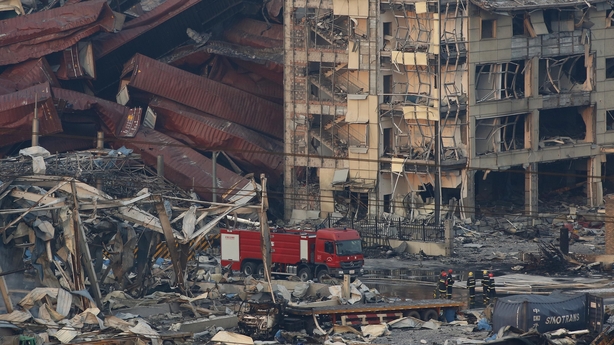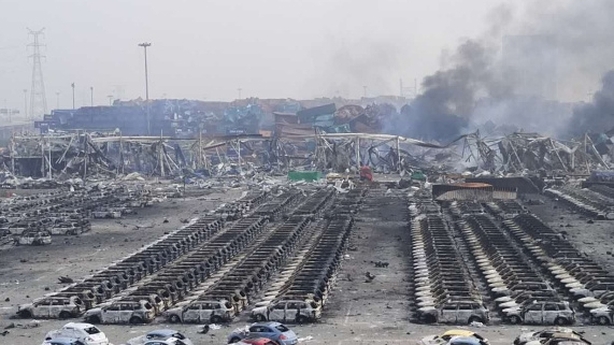China has defended fire fighters who initially hosed water on a blaze in a warehouse storing volatile chemicals, a response foreign experts said could have contributed to two huge blasts that killed 56 people.
At least 21 firefighters were among those killed by the explosions at the port in the northeastern city of Tianjin on Wednesday night, state media said.
About 720 people were injured, 25 critically and 33 of them seriously, in yet another accident in a nation all too familiar with industrial disasters.
Columns of smoke from fires still burning today rose from the site amid crumpled shipping containers, thousands of torched cars and burnt-out shells of port buildings.
Rescuers pulled one survivor from the wreckage, a city official told reporters, who was later identified as a firefighter.


The warehouse, designed to house dangerous and toxic chemicals, was storing mainly ammonium nitrate, potassium nitrate and calcium carbide at the time, according to police.
The official Xinhua news agency has said several containers in the warehouse caught fire before the explosions.
The State Council, China's cabinet, said a nationwide inspection of dangerous chemicals and explosives would be launched in response to the disaster, along with a crackdown on illegal activities to strengthen industry safety.
"The disastrous explosions at the ... hazardous materials warehouse at the Tianjin port caused huge loss of life and injuries, economic damages and social impact," the State Council work safety commission said on its website.
"The lessons are extremely profound," it said.
Chemical safety experts said calcium carbide reacts with water to create acetylene, a highly explosive gas.
An explosion could be caused if fire fighters sprayed the calcium carbide with water, they said.
Lei Jinde, the deputy propaganda department head of China's fire department, a part of the Ministry of Public Security, told state-backed news website The Paper.cn that the first group of fire fighters on the scene had used water.
"We knew there was calcium carbide inside but we didn't know whether it had already exploded," he said.
"At that point no one knew, it wasn't that the fire fighters were stupid," Mr Lei said, adding that it was a large warehouse and they didn't know the exact location of the calcium carbide.

